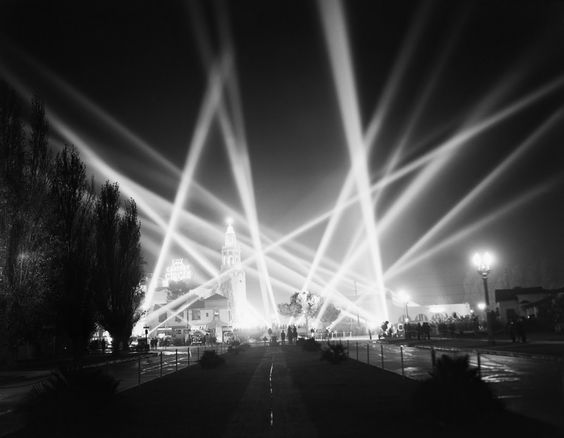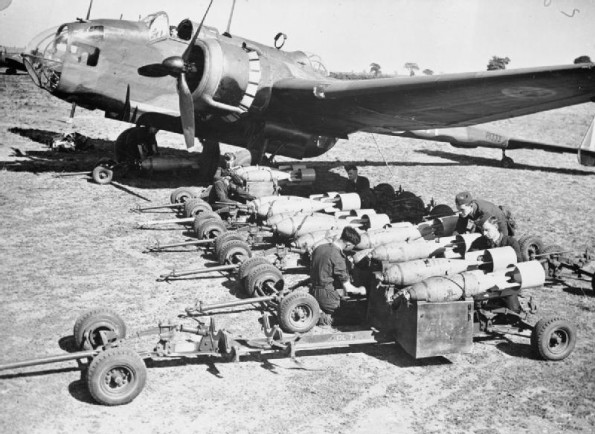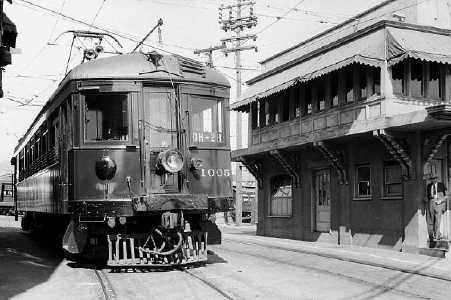Thursday 14 November 1940
 |
| Civilians recover after the 14 November 1940 bombing of Coventry. |
The Greeks launch the attack early in the morning and achieve surprise, not using artillery. The Greeks make good gains on the first day across the Albanian border. Some claim this represents the first Axis land defeat of the war, but that is a bit melodramatic, as the Germans were pushed back here and there during the invasions of France and Norway, too.
The British continue ferrying troops to Piraeus using four cruisers from Alexandria. Many of these are in support of the new RAF presence there, led by Air Vice-Marshal John H. D'Albiac.
 |
| German reconnaissance photos of Coventry after the attack soon appear in Axis publications. |
The British have prior warning of the attack. A downed Luftwaffe airman reveals under interrogation several days previously that a "massive attack" on Coventry by "moonlight" is planned "between 15-20 November." The attack will include "every Luftwaffe plane." Winston Churchill (alone) apparently has advance warning of the attack from Ultra intercepts as well. Thus, the attack is not a big surprise - except for the people actually bombed, killed and wounded.
The increasing intensity of raids has caused a large fraction of Coventry residents to abandon the city at night and find lodgings in the countryside. This proves wise, as this entirely rational fear keeps the number of deaths and casualties due to Moonlight Sonata much lower than it would be otherwise. Anti-aircraft defenses have been concentrated in London and other larger targets, and only 24 3.7 inch and 12 40 mm Bofors guns - insufficient to disrupt a major attack - are available in Coventry. Fortunately, there are few casualties in shelters.
Some 400-515 Luftwaffe bombers from Field Marshal Sperrle's Luftwaffe 3, guided by 13 special Heinkel He 111 radar-equipped bombers of KG 100, begin the attack not long after sunset at 19:20. The KG 100 bombers are guided by X-Gerät radio beams that the British have not yet figured out how to disrupt. The bombs rack up successes early, with the Coventry Cathedral ablaze in less than an hour. Hit by numerous bombs, the cathedral soon is a wreck, a roofless shell which becomes the symbol of the attack. The bombing intensifies until midnight and then tapers off as daylight approaches.
There are well over 500 deaths (nobody knows precisely), over 1000 other casualties, and destroys over 4300 homes. German Propaganda Minister Joseph Goebbels coins the word "coventriert" ("Coventried") to describe the utter devastation (as in, "Next, Southhampton will be Coventried!"). The use of pathfinder bombers is validated, and also the use of blockbuster bombs mixed with massive numbers of incendiaries.
The controversial aspect of the raid arises from the belief that the British could have vastly reduced the number of casualties due to their foreknowledge of the attack. In fact, the author of the book that revealed the Ultra secret in 1974, "The Ultra Secret," Group Captain F. W. Winterbotham, tacitly blamed Churchill for the deaths because Churchill (supposedly) refused to authorize precautionary measures lest the war-winning Ultra secret is revealed. There are vociferous and highly credentialed people on both sides of that argument - the deniers claim that Churchill actually had limited knowledge from Ultra of the operation and did not know that Coventry was the target (other military intelligence besides Ultra, however, did pinpoint Coventry). The "avoidable tragedy" due to Churchill's supposed silence and inaction has become part of the lore of the event and, to some extent, the common view about Operation Moonlight Sonata.
The RAF, for its part, does make use of the non-Ultra intelligence about Operation Moonlight Sonata. It has been mounting Operation Cold Water. This is an attempt to disrupt the coming Luftwaffe attack by taking concrete steps. Operation Cold Water, initiated at 03:00 on 11 November due to military intelligence, includes:
- monitoring German radio
- interfering with the Luftwaffe radio navigational beams
- patrolling over Luftwaffe airfields
- attacking the KG-100 airfields
- attacking the German navigational beam transmitters near Cherbourg
- mounting a massive counter-raid against "a selected city in Germany"
- maximum night fighters and anti-aircraft defenses.
RAF Bomber Command, as part of these countermeasures, raids Berlin and other targets with 82 bombers. It suffers unusually heavy casualties, losing 13 bombers.
During the day, the RAF had more success, dispersing an attack by 30 Junkers Ju 87 Stukas over Dover. The RAF loses a Hurricane and a Spitfire.
 |
| Greek gunners during the Battle of Morava-Ivan. |
The Luftwaffe bombs and sinks British 1216-ton freighter St. Catherine off Aberdeen. There are 15 deaths (14 crew, one passenger). Some accounts place this on the 13th, so we put it on that date's page, too - but it only sank once. ;)
The Luftwaffe damages 4960-ton British freighter Fishpool, then is towed to harbor by corvette HMS Gardenia.
British 92 ton drifter The Boys founders in the Downs due to heavy seas.
Royal Navy minelayers HMS Teviotbank and Plover lay minefield BS 46 in the North Sea. The Luftwaffe notices these minelaying operations and attacks the Teviotbank, but it is undamaged.
The Royal Navy attempts to refloat sunken destroyer HMS Fame, but the weather is bad and the destroyer is too damaged, so the operation is unsuccessful.
Convoy FN 334 departs from Southend, Convoy FS 335 departs from Methil, Convoys HX 87 (16 merchantmen) and HX 88 depart from Halifax.
Battle of the Mediterranean: The Royal Navy ships that participated in Operations Judgement and Coats make port in Alexandria. Aircraft carrier HMS Argus arrives in Gibraltar for Operation White.
An air attack on Alexandria damages 8299-ton Egyptian freighter Zamzam.
In Malta, improved radio direction finder (RDF) equipment brought on the recent convoy from Alexandria significantly improves the RAF's ability to spot Italian air attacks.
Battle of the Indian Ocean: German raider Atlantis has been refueling from 6750-ton Norwegian tanker Teddy since capturing it on 8 November. Today, the German crew has no further use for the tanker and scuttles it.
 |
| Street damage in Coventry. |
German/Italian Relations: German Field Marshal Wilhelm Keitel, chief of OKW, meets at Innsbruck with his opposite number in the Italian military, Marshal Pietro Badoglio. Badoglio, who has been chief of staff since 1925, knows the Italian military inside and out, and he makes clear to Keitel that the Italians in Egypt would advance no further. In addition, he has no plans to occupy southern Greece. These talks continue on the 15th.
German Government: Admiral Raeder confers with Hitler. He recommends postponing an invasion of the Soviet Union until the Kriegsmarine blockade of Great Britain diminishes its strength. Hitler, however, is of the opposite view: that destroying the Soviet Union will diminish Great Britain's strength. Hitler sees the USSR as easy prey.
Canada: The first graduates from the Imperial training scheme in Canada begin to embark on passage to Great Britain.
Singapore: Air Marshal Brooke-Popham arrives in Singapore. He is the new British Commander in Chief for the Far East.
German Homefront: The government makes it legal to consume dog meat.
British Homefront: Neville Chamberlain's funeral is held at Westminster Abbey, with Churchill giving the eulogy.
American Homefront: In New York City, The Queens-Midtown Tunnel opens to traffic. It remains in operation today, connecting Long Island to Manhattan.
November 1940
November 1, 1940: Hitler Irate
November 2, 1940: U-31 Sunk - Again
November 3, 1940: Kretschmer's Master Class
November 4, 1940: Spain Absorbs Tangier
November 5, 1940: Jervis Bay Meets Admiral Scheer
November 6, 1940: San Demetrio Incident
November 7, 1940: Galloping Gertie
November 8, 1940: Italian Shakeup in Greece
November 9, 1940: Dutch Fascists March
November 10, 1940: Fala and Doc Strange
November 11, 1940: Taranto Raid
November 12, 1940: Molotov Takes Berlin
November 13, 1940: Molotov Foils Hitler
November 14, 1940: Moonlight Sonata
November 15, 1940: Warsaw Ghetto Sealed
November 16, 1940: France Keeps Battleships
November 17, 1940: Malta Hurricane Disaster
November 18, 1940: Hitler Berates Ciano
November 19, 1940: Birmingham Devastated
November 20, 1940: Hungary Joins Axis
November 21, 1940: Dies White Paper
November 22, 1940: Italians Take Korçë
November 23, 1940: U-Boat Bonanza!
November 24, 1940: Slovakia Joins In
November 25, 1940: Molotov's Demands
November 26, 1940: Bananas Be Gone
November 27, 1940: Cape Spartivento Battle
November 28, 1940: Wick Perishes
November 29, 1940: Trouble in Indochina
November 30, 1940: Lucy and Desi Marry
2020








